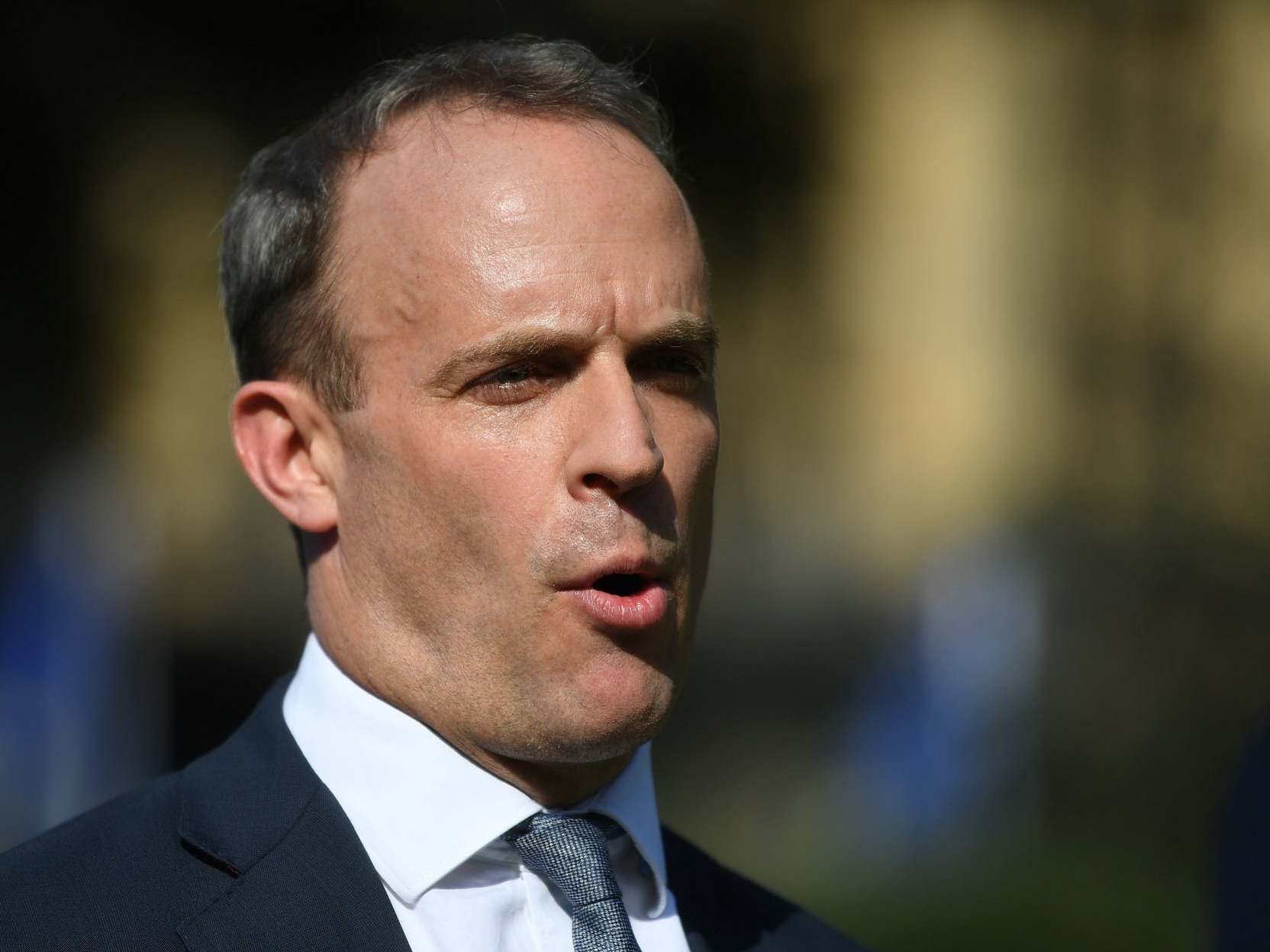Dominic Raab to raise human rights issues in Saudi Arabia during Gulf visit
'The Gulf is important to UK security, but it’s also a region of enormous opportunity,' Mr Raab says

Foreign Secretary Dominic Raab will be raising issues of human rights abuse in Saudi Arabia and the worsening humanitarian situation in Yemen during his first official visit to the Gulf this week.
Mr Raab will meet his Saudi counterpart, Prince Faisal bin Farhan, and the Yemeni president Abdrabbuh Mansur Hadi in Riyadh before travelling to Oman to meet the country’s new ruler, Sultan Haitham bin Tarik.
The talks in both the countries will also include a wide range of other subjects, including security and trade, said the Foreign Office.
The situation in the region continues to be extremely tense following the assassination of the Iranian Revolutionary Guards commander Qassem Solemani by the US, the seizure of oil tankers and drone attacks on Saudi oil facilities. The UK has strong defence ties with Oman, with British Special Forces carrying out annual exercises.
At the same time, London is pushing for post-Brexit trade in the Gulf and has proposed an agreement with the Gulf Cooperation Council, which includes the UAE, Qatar, Kuwait and Bahrain as well as Saudi Arabia and Oman.
The crisis over the spread of coronavirus is also likely to be discussed. Saudi Arabia has closed the two holiest shrines of Islam, Mecca and Medina, to foreign travellers following the outbreak, while Oman has banned entry to the country for nationals of Iran, which has seen a rising number of infections and deaths from the disease.
Britain has condemned acts of human rights abuse in Saudi Arabia, such as the murder of the journalist Jamal Khashoggi and imprisonment of activists. But civil rights groups have charged the government with muting its criticism in order to get commercial deals after leaving the European Union.
The UK is the penholder for Yemen in the UN Security Council, a term designating three of the permanent members — France, UK, US — leadership role in certain situations. Yemen tops the watchlist of countries most likely to face humanitarian catastrophe in 2020. The long running conflict in which the Saudi- and Emirati-backed Yemeni government is fighting Houthi rebels means 24 million people, 80 per cent of the population, will need urgent assistance this year, according to aid agencies.
Mr Raab said ahead of his visit that he will also seek to push for a political solution following the recent surge in Houthi violence and constraints on getting humanitarian aid to those in need.
He continued “The Gulf is important to UK security, but it’s also a region of enormous opportunity. Both Oman and Saudi Arabia want to grow in sectors such as health, education and culture where the UK leads the world. I look forward to discussing trade, regional security, climate change and human rights in this pivotal region.”
Join our commenting forum
Join thought-provoking conversations, follow other Independent readers and see their replies
Comments